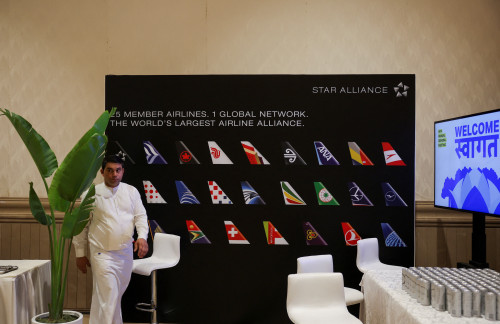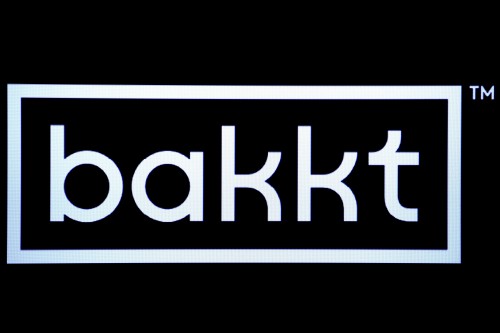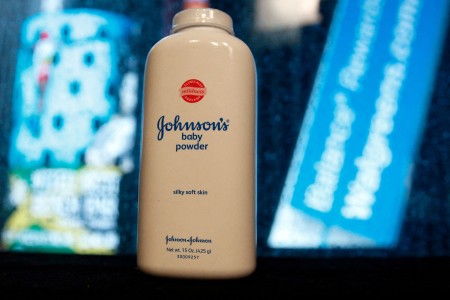By Rajesh Kumar Singh, Shivansh Tiwary and Tim Hepher
NEW DELHI (Reuters) -Global airlines wrapped up a two-day summit on Tuesday sticking to a target of net zero emissions by 2050, but voicing fresh worries about the availability of greener fuels and new planes.
The International Air Transport Association, which represents about 350 airlines, said hitting the target would cost carriers $4.7 trillion, or $174 billion a year – at least some of which is likely to be passed on as higher fares.
Despite earlier signs that some airlines were growing more sceptical about the chances of reaching the target, IATA avoided re-opening a sensitive debate on net zero as bosses pointed to a narrow window for the industry to meet its goals.
But they stepped up criticism of energy companies, accusing them of adding arbitrary charges in Europe, and planemakers that have failed to deliver efficient jets on time.
“We still have time to get there, but we do need to see more action on the part of all of the partners in the value chain to make sure that the industry can get there,” said IATA Director General Willie Walsh.
In April, Walsh had issued a warning that the net zero emissions agenda was sliding off course, in comments that appeared designed to trigger discussion about the challenges.
On Tuesday, Walsh said there had been no talk of any delay in the target at this week’s annual meeting in New Delhi.
The industry’s sustainability efforts are largely centred around plant-based sustainable aviation fuels. But with current supplies covering just a fraction of airlines’ fuel needs, carriers urged governments and energy firms to do more.
“The oil companies are obviously not producing (enough) SAF,” said IATA’s Chief Economist Marie Owens Thomsen.
The energy industry insists enough SAF is available in Europe for the time being after a spate of investments, with some executives and analysts saying markets are oversupplied.
“Contrary to what some are saying we believe we have an oversupply situation currently in the SAF market,” Carl Nyberg, Senior Vice President, Renewable Products Commercial, at SAF producer Neste told Reuters.
Nyberg said he believed the issue was more to do with price, as the cost of ingredients for SAF means it is currently around three times more expensive than fossil jet fuel.
But Walsh said many airlines around the world were unable to procure SAF without importing it over large distances, which would defeat the aim of reducing emissions.
European industry association FuelsEurope did not respond to a request for comment.
‘WANING ENTHUSIASM’
The meeting saw a shift in tone barely four years after the industry committed to step up plans to tackle climate change amid mounting pressure from regulators and environmental groups.
“There’s a level of scepticism and perhaps you could even say sort of waning enthusiasm for the overall energy transition,” said Patrick Healy, group chair at Cathay Pacific.
Airlines see higher profits in 2025, cushioned from the worst effects of global trade tensions by falling prices of traditional jet fuel.
Rob McLeod, head of energy risk solutions at Hartree Partners, urged airlines to use the savings from fuel costs to invest more in SAF to help address concerns over funding the transition.
U.S. President Donald Trump’s tariff war has cast a shadow over the industry’s outlook by driving up operating costs and hitting travel demand.
New fuel-efficient jets are expected to help the decarbonisation drive. But production delays at Boeing and Airbus have forced carriers to keep older generation planes in the air.
“Everyone’s realising that it’s a lot more complicated than we thought a few years ago,” Healy said.
The summit, hosted by budget airline IndiGo, was also a celebration of India’s emergence as one of the hottest aviation markets. In a rare attendance by a major leader, Prime Minister Narendra Modi said the country’s carriers were poised to keep buying after placing “orders for more than 2,000 new jets.”
It also marked a new chapter for the 80-year-old IATA as it inducted low-cost pioneer Southwest Airlines as a member.
The U.S. carrier for long symbolised a revolt against traditional airlines, though analysts say Southwest now resembles its main full-service rivals as costs rise.
(Reporting by Rajesh Kumar SinghEditing by Mark Potter)




